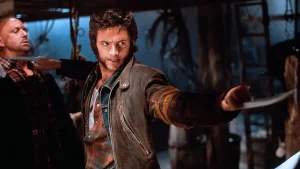The role-playing genre has always been about stories, choices, and worlds that immerse the player, sometimes long after the game is turned off. Some RPGs come and go, fading with time and changing hardware, but others survive. Whether this is through craftsmanship, storytelling, or timeless design, these have aged remarkably well and remain as captivating today as the day they launched. Whether they came out twenty years ago or less than a decade back, these are the rare games that continue to inspire new players, define genres, and remind us why we fell in love with RPGs in the first place.
From the golden age of 16-bit storytelling to the sprawling open worlds of the modern era, these six titles prove that good design and strong writing never fade. Some of them still look surprisingly fresh, while others wear their age proudly. What unites them all is their ability to pull players into their worlds, and we’ve highlighted six games that continue to do so despite their age.
When Paper Mario: The Thousand-Year Door was first released on GameCube in 2004, no one could have predicted the reaction. The first Paper Mario was certainly a good game, but the sequel took this to new levels. Nearly two decades later, it remains one of the most beloved and replayable RPGs, even outside of Nintendo’s portfolio. The recent remaster only showed how iconic this game is.
What makes The Thousand-Year Door so enduring is its perfect balance of humor, charm, and surprisingly deep mechanics. Its whimsical paper aesthetic pairs perfectly with the turn-based combat, offering layers of strategy despite the paper-thin art style. Traditional RPG combat was enhanced with action-based timing, which has proven to be incredibly popular thanks to Clair Obscur: Expedition 33.
Not only this, but the writing and art have aged beautifully. It doesn’t rely on nostalgia to look or feel good; it just does. The script is somehow full of wit, satire, and humor while still delivering a heartwarming and heartbreaking story. The companions, especially Vivian, showcase this blend of serious and lighthearted writing. Nintendo knocked it out of the park with this GameCube masterpiece, and somehow decided to take the Paper Mario series in a different direction after.
While The Witcher 3: Wild Hunt may not seem that old, it was released over a decade ago, showing how strong it is. Many RPG games that launched only a year ago have fallen off, while Geralt’s conclusion continues today. This isn’t just because of how big and sprawling the game is, but because of how meaningful it is, even in the smallest interactions. Something as simple as stopping an execution or walking past it can change outcomes. This adds weight to Geralt’s journey and story that few games can rival.
The Witcher 3 is narratively complex. It is choice-driven, and the attention to detail is impressive even today. Few games handle moral ambiguity as elegantly as CD Projekt RED’s fantasy romp. The decisions players make feel human beyond a simple good or evil choice. You are forced to live with the choices you made as you progress through the game and face the consequences of your actions. Especially when it comes to the supporting cast, such as Yennifer or Triss.
The next-gen update in 2022 breathed new life into the game, but it didn’t need it. New players were jumping into the game while veterans were replaying it before the update. The Witcher 4 will likely have a similar legacy, but until then, The Witcher 3 remains one of the finest RPGs in gaming history. Its purposeful design offers an unforgettable open world with dense emotion and engaging gameplay.
Before cinematic RPGs dominated the genre, Baldur’s Gate 2: Shadows of Amn set the standard for storytelling depth and mechanical complexity. Released in 2000 by BioWare, it built upon the original Baldur’s Gate to deliver one of the most ambitious RPGs of its time. This sprawling Dungeons & Dragons epic still stands as one of the greatest games in the genre, ultimately leading to Baldur’s Gate 3 by Larian Studios, another incredible CRPG.
Even today, Baldur’s Gate 2 hasn’t lost its magic. The visuals may be dated, but the gameplay remains as good as ever. Its real-time-with-pause combat remains satisfying thanks to the tactical depth and strategy it provides. The companions are some of the best in gaming, and a few even appear in Baldur’s Gate 3.
But what truly keeps Baldur’s Gate 2 relevant is its writing. Every quest feels hand-crafted, filled with lore and personality. It feels like you are playing a true tabletop campaign surrounded by all your friends. The creativity shows that choices and chaos can coexist and lead to incredible outcomes. Baldur’s Gate 2 is still worth playing today, especially if you find yourself craving more of Baldur’s Gate 3.
Perhaps one of BioWare’s greatest RPGs, Dragon Age: Origins feels like a spiritual successor to Baldur’s Gate that brings classic RPG design into the modern world. It feels proudly old school despite making significant changes to what many expect from a CRPG. BioWare struck gold with this title, and none of its sequels have quite managed to capture the success this game achieved.
One of the greatest parts of the game is its character creation system. This didn’t just determine your stats and appearance, but how the world viewed your character. Elves faced discrimination while a noble human was practically handed the world. This creates a personal connection to the character and world, and few games opt for this level of detail.
The tactical combat embraces real-time with pause, giving players complete control over every skirmish and demanding strategy instead of reflexes. This perfectly complements the story, a desperate war against the Darkspawn and the choices surrounding the Grey Wardens. These made Dragon Age: Origins unforgettable. Every decision carried weight, each companion had depth, and the game’s history speaks for itself.
There is a reason people still play The Elder Scrolls V: Skyrim more than a decade later. Bethesda’s first-person immersive RPG is one of the best-selling games of all time and has been ported to nearly every platform. It has become a meme, a legend, and stands the test of time like RPGs do. Even when The Elder Scrolls VI comes out, people will probably still be playing Skyrim over it.
The most appealing aspect of Skyrim is its freedom. Players can carve whatever path they wish. You could be a dragon-slaying hero, a stealthy assassin, a pacifist alchemist, or even a vampire lord—all within the same save file. Its open-ended design encourages exploration and experimentation, and even today, the world of Tamriel is one of the best playgrounds in the RPG genre.
The modding community only takes this further. There is the running joke of modding Skyrim so much that you can’t run it, and it’s true. There are so many options, thanks to fans who alter the way the game plays. But even without mods, Skyrim’s charm and appeal endures. The music, the world, and the sense of discovery are as powerful as ever. This is one of the few RPGs that has achieved a timeless wonder, and it likely won’t disappear for a while.
Few games in history are as universally praised as Chrono Trigger. To this day, three decades later, fans still want a remake of this SNES game. It has been considered one of the few perfect RPGs, and despite its visuals and old-school gameplay, it still holds up as one of the best games of all time. More than nostalgia, Chrono Trigger endures because it represents the pinnacle of thoughtful design. Every mechanic, line of dialogue, and musical note serves a purpose.
Part of its ageless appeal lies in its simplicity and innovation. Created by an all-star team including Final Fantasy’s Hironobu Sakaguchi, Dragon Quest’s Yuji Horii, and artist Akira Toriyama, Chrono Trigger brought together the best of Japanese RPG design. The time-traveling narrative perfectly weaves together multiple eras and makes it both compelling and cohesive.
The combat system remains elegant and satisfying. Battles are fast-paced, blending turn-based strategy with real-time elements through its Active Time Battle system. The addition of moves shared between party members adds an extra layer of dynamic strategy that feels fresh, even today. Chrono Trigger’s storytelling remains unmatched. Its characters, from Crono and the Frog to Magus and loyal Lucca, are instantly memorable, and the game’s multiple endings ensure every playthrough feels personal. As nice as it would be, Chrono Trigger doesn’t need a remake to be relevant today.
What do you think? Leave a comment below and join the conversation now in the ComicBook Forum!
The post 6 RPG Games That Have Aged Incredibly Well appeared first on ComicBook.com.




